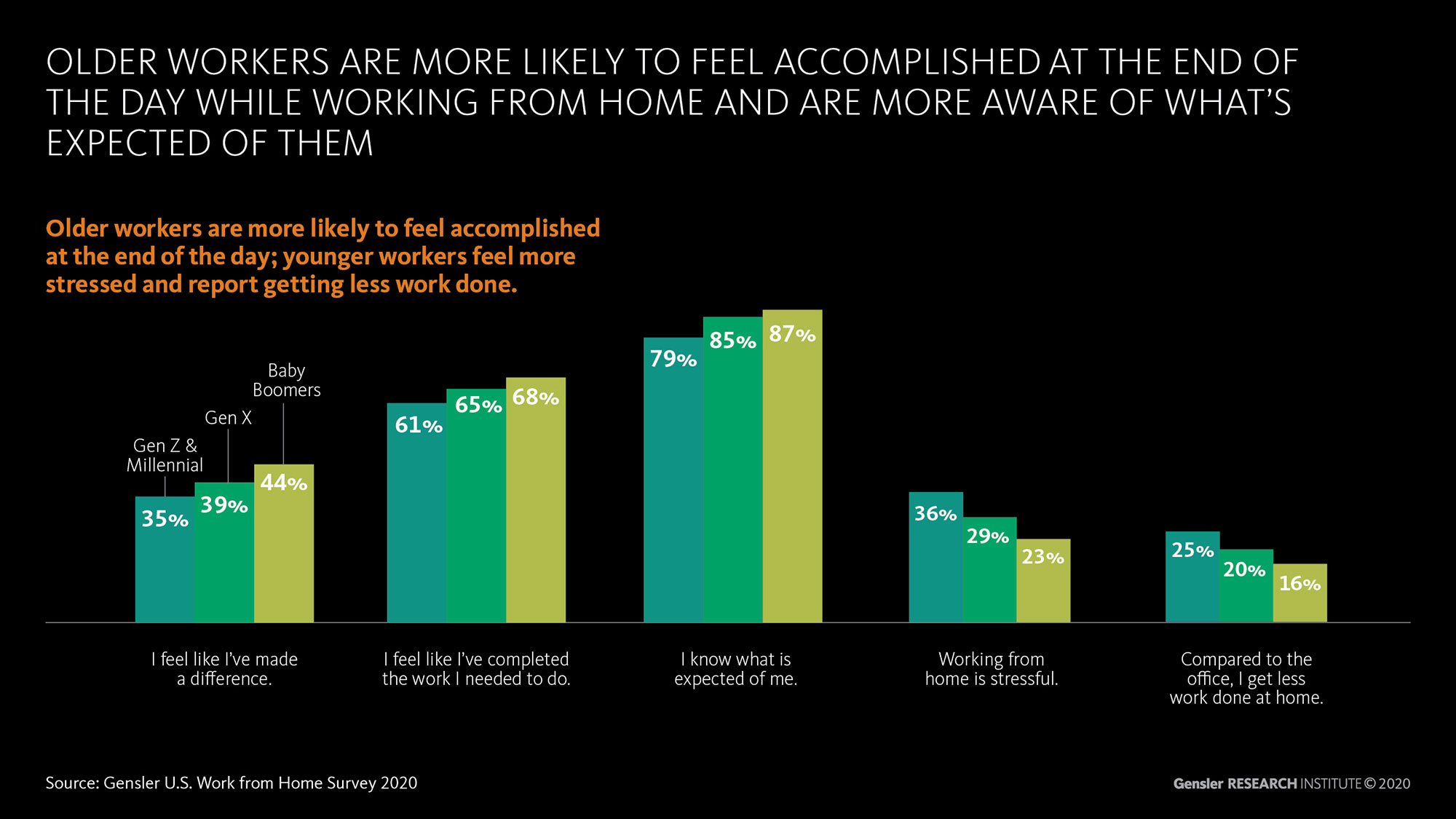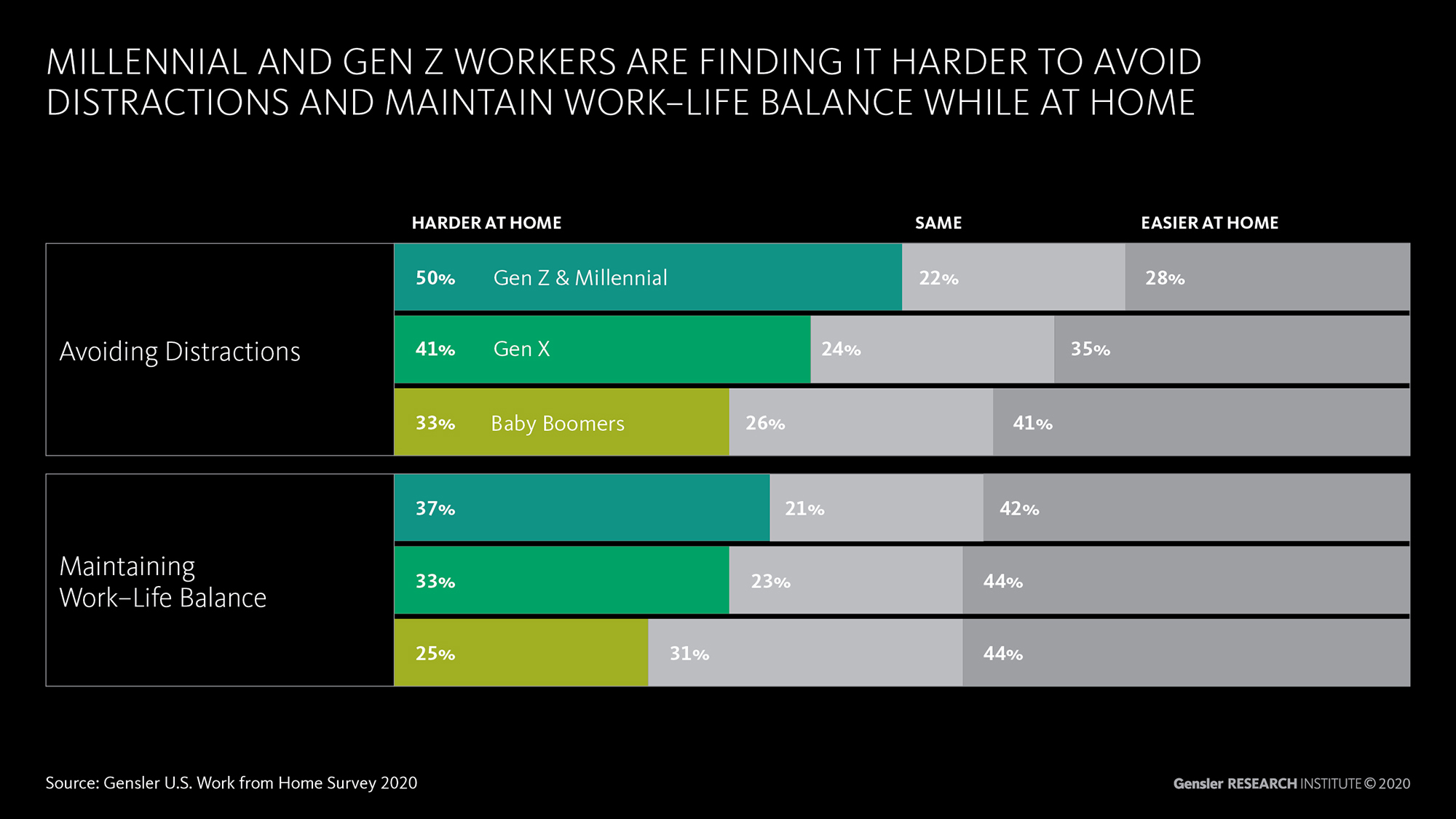Younger workers are feeling less productive and less connected.
Despite their technological preparedness for mobile work, younger workers report a far more challenging experience working from home than their older peers. They are less likely to feel as if they’ve made a difference or completed the work they needed to do at the end of a typical workday, according to survey responses. Working from home may be having an alienating effect on younger workers too, as they may feel a gap between their work and their company’s mission.

Younger workers are having a harder time working from home.
Younger workers may be savvier about connecting with others virtually, but so far, working from home has burdened millennials and Gen Z more than older workers. On average, younger workers had less experience working from home prior to COVID-19. With inexperience working from home, they now report more distractions and a harder time maintaining a work/life balance.

U.S. Work From Home Survey 2020 Methodology
The U.S. Work From Home Survey 2020 was conducted online through an anonymous, panel-based survey of over 2,300 U.S.-based workers who were full-time employees of a company of 100+ people. Each respondent routinely worked within an office environment prior to COVID-19 and was currently working from home at the time when the survey was released between April 16 and May 4, 2020. Responses were evenly distributed across 10 industries and represent a wide range of seniority levels, roles, ages, and geographies.
The U.S. Work From Home Survey 2020 represents input from 2,300+ U.S. office workers across a variety of industries and demographics.
